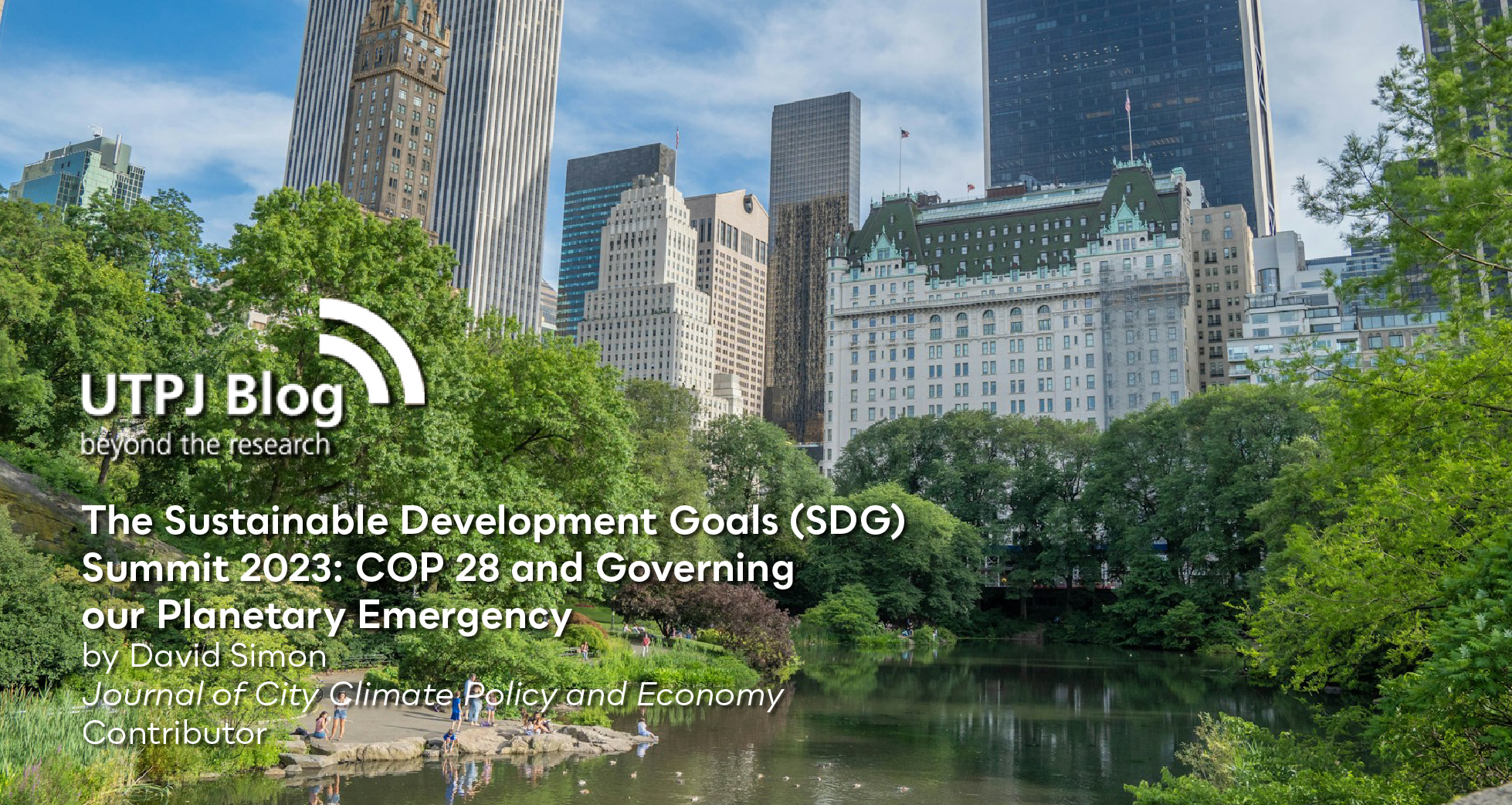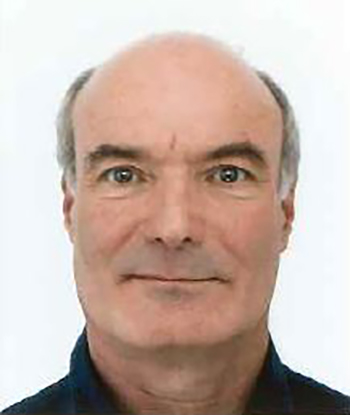
Written by guest blogger David Simon.
It’s crunch time for our small planet and all life on it. Climate and environmental changes will continue to increase for a considerable period, even if global greenhouse gas (GHG) emissions peak over the next few years. The frequency and severity of extreme weather events are increasing around the world and is now expected to be the hottest on record.
It remains to be seen whether the remaining deliberations at COP28 will lead to increased ambition in levels of the voluntary Nationally Determined Contributions (NDCs) to GHG emissions reductions under the Paris Agreement or provide any teeth to their analysis and monitoring. However, the summit began hopefully, with early announcements of contributions to the long fought-for Loss and Damage Fund to compensate low-income countries most impacted by the cumulative GHG emissions since the Industrial Revolution.
Yet these efforts are unlikely to be adequate. The report of the influential Climate Governance Commission (CGC) – co-chaired by Mary Robinson, María Fernanda Espinosa and Johan Rockström and launched immediately ahead of COP28 – highlights that six of the nine scientifically-defined planetary boundaries for safe warming levels have already been surpassed. Therefore, the narrow window for safe increase of planetary temperatures of 1.5°C identified by the IPCC in 2021-22 has effectively closed. Consequently, the key issue has become how far we can overshoot these limits – and for how long – before we are able to bring temperatures back below the threshold for damaging longer-term climate change.
Crucially, too, the CGC report, Governing our Planetary Emergency, identifies the inadequacy of the existing global climate governance institutions and regime as an urgent problem. It outlines a series of necessary changes and new arrangements which will be fleshed out in greater detail over the next 1-2 years. I am delighted to be contributing particularly to the urban dimensions of that effort.
Another key global sustainable development initiative is the UN’s 2030 Agenda and its framework of Sustainable Development Goals. This year marks the halfway point of their 15-year implementation period and the midterm review at the SDG Summit in September highlighted the shortfalls, particularly in view of the combined impact of the COVID-19 pandemic and the sharp food and energy price rises following Russia’s invasion of Ukraine. Greatly increased ambition, commitment and resourcing will be required if most SDGs are to be achieved. My own detailed study of the formulation of, and progress in implementing, SDG 11 (the urban goal) in towns and cities worldwide was published this week. This study underscores the scale of the challenge: no world region – save for a few cities – is on target at present to achieve it. Effective localisation and careful targeting of interventions to maximise appropriateness and synergies across different goals, while minimising trade-offs, will be crucial to closing the achievement gap.
It has been exactly a year since I published the policy guidelines piece, “From the What to the How of Keeping 1.5°C Alive: Methodological Innovations,” in the inaugural issue of the Journal of City Climate Policy and Economy. The proposals are qualitative and explain the importance of local co-design and co-production of urban solutions among different stakeholders, who have often held diametrically opposite or divergent perspectives. The CGC report recognises the value of such approaches, which are all too easily overlooked in the search for hi-tech quick fixes.
 DAVID SIMON is Professor of Development Geography and Director for External Engagement in the School of Life Sciences and the Environment, Royal Holloway, University of London, UK. He was Director of Mistra Urban Futures, Gothenburg, Sweden from 2014–2019, where he led the research on comparative transdisciplinary co-production and the Campaign for an Urban SDG (now SDG 11), on sustainable cities and communities. A Rhodes Scholar and Fellow of the UK Academy of Social Sciences, he specialises in cities, climate change and sustainability. He has served on the international Commission on Sustainable Agricultural Intensification (CoSAI), and is also a founding Editor-in-Chief of The Global Social Challenges Journal. He has authored and edited several books, most recently: Sustainable Human Settlements in the Global Urban Agenda (Agenda Publishing, 2023).
DAVID SIMON is Professor of Development Geography and Director for External Engagement in the School of Life Sciences and the Environment, Royal Holloway, University of London, UK. He was Director of Mistra Urban Futures, Gothenburg, Sweden from 2014–2019, where he led the research on comparative transdisciplinary co-production and the Campaign for an Urban SDG (now SDG 11), on sustainable cities and communities. A Rhodes Scholar and Fellow of the UK Academy of Social Sciences, he specialises in cities, climate change and sustainability. He has served on the international Commission on Sustainable Agricultural Intensification (CoSAI), and is also a founding Editor-in-Chief of The Global Social Challenges Journal. He has authored and edited several books, most recently: Sustainable Human Settlements in the Global Urban Agenda (Agenda Publishing, 2023).
Email: d.simon@rhul.ac.uk
Twitter: @UrbanDavidSimon
“From the What to the How of Keeping 1.5°C Alive: Methodological Innovations” was published in the inaugural issue of the Journal of City Climate Policy and Economy.
Comments on this entry are closed.